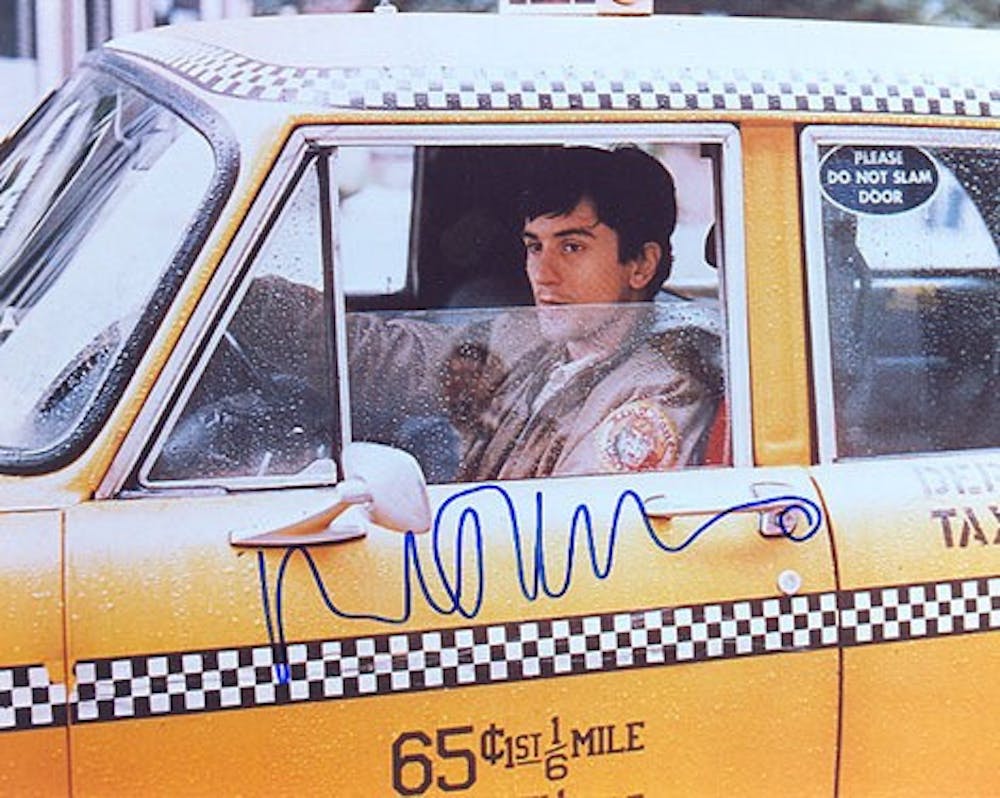By SPENCER ABROHMS For The News-Letter
On Thursday, Sept. 29, Homewood Professor of the Arts Thomas Dolby hosted a screening of Martin Scorsese’s digitally-remastered Taxi Driver at The Charles Theater. When the screening began at 9 p.m., the audience was packed with people of all ages who were eager to revisit this classic film. It was evident that much of the audience had already seen the film judging by the repetitions of the classic line “You talkin’ to me?” throughout the theater.
Before beginning the film Dolby took the stage to discuss the film’s prolific and accomplished composer Bernard Herrmann. After commenting on the fact that Herrmann’s daughter Wendy was in the audience, he described Herrmann’s long and storied partnership with Alfred Hitchcock in films such as Psycho, North by Northwest, and Vertigo.
Dolby himself was particularly influenced by Herrmann’s score for the 1958 thriller Vertigo which made him determined to become a composer himself.
Dolby also indicated that those who worked on The Artist were heavily influenced by Herrmann’s Vertigo score, as they used it for their film with only miniscule acknowledgement to Herrmann toward the end of the credits.
Providing the audience with a series of relevant anecdotes from the life of the composer, Dolby portrayed Herrmann as a musical genius so passionate about his craft that he was often difficult to work with. Herrmann’s conviction and vision ultimately caused him to cut ties with Hitchcock — an action that allowed the composer to pursue other endeavors including his eventual work on Taxi Driver.
Dolby also showed clips from some of Herrmann’s other films including The Ghost and Mrs. Muir in order to show how the composer’s masterful control of the score both influenced and enhanced the film.
Noting that Herrmann was constantly “in tune” with what he was seeing on the screen, Dolby commented on Herrmann’s strong point of view as a composer.
“Directors were able to cut down on dialogue, allowing Herrmann’s score to tell the story,” he said.
Dolby concluded his talk by describing the intricacies of Herrmann’s well-known score for Taxi Driver.
“The score drives out of the movie itself. The main theme sounds like traffic passing in the streets, shows the repetitive nature of the taxi driving experience, the endless repetitiveness and the passage of time. It reminds us that [Travis Bickle] was in the marines and has some form of PTSD. Everything is coming from what we are seeing on the screen,” he said. Much of the score was used to build tension and track the main character’s descent into madness.





